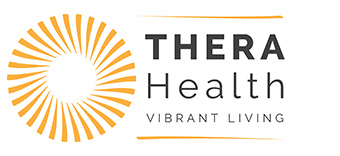A healthy heart starts with a healthy lifestyle. This month’s guest post is by Dr Michael Elstein, MBBCH, who is an expert on health, wellbeing, and anti-ageing. Here he shares some simple steps you can take to reduce your risk and be heart smart.
1. Control your diet
Limit unhealthy fats (e.g. saturated and trans-fats) and cholesterol-rich foods in your diet, especially found in dairy products and read meat. New research directly links red meat consumption with heart disease. Also go easy on egg consumption as eggs can increase HDL which is the good cholesterol, but according to some research eggs, specifically the yolk, can raise total cholesterol and LDL, the bad cholesterol, while also boosting inflammation and free radical stress, two key instigators of heart disease. With meat and eggs now on the no-fly zone fish has to step up as one of our primary sources of essential protein. A diet rich in fresh fruit, vegetables, greens with omegas, nuts and wholegrains are key to a healthy diet. Eat omega-rich fish at least twice a week. Also remember to limit salt intake and to control your portion sizes.
2. Embrace the power of Omegas
Omega-3 Fatty Acids found predominantly in fatty fish including salmon, tuna, mackerel, sardines and herring are essential in helping to support your cardiovascular health together with a good quality omega-3 fish oil supplement. The reason for considering supplementation is based on the evidence that in order to enjoy heart health benefits from omega 3 fatty acids we need to partake of at least two reasonable size pieces of salmon twice a week. Most of us don’t do this. This also translates to anti-inflammatory benefits of omega-3 fatty acids. In recent years research has indicated that low levels of ongoing inflammation play a role in a number of age related diseases including heart disease. A good quality evidence based omega-3 supplement which includes EPA and DHA may help to reduce the risk associated with heart disease.
3. Keep a check on your inflammation levels
Elevated cholesterol levels, raised blood pressure, high blood sugar, obesity and infections increase inflammation. Make sure that you manage these as effectively as possible – by watching your diet, reducing your stress levels and maintaining good exercise routines.
4. Know your family heart disease history
Risk of heart disease can be linked to family history which means if a close relative has been or is at risk of developing conditions such as high blood pressure, high cholesterol or coronary heart disease, you may potentially be in high risk as well. Prevent heart disease early by knowing your family history – early detection is key to prevention.
5. Cut back on cigarettes
Smoking increases the risk of heart attack. Not only dose it harm you but passive smoking or the environmental exposure to tobacco smoke has been shown to damage the lining of blood vessels, compromise blood flow to the chambers of the heart, and make blood thicker and stickier.
6. Diabetes and the Metabolic Syndrome
If you are overweight and your blood pressure is raised, it is highly likely that you are suffering from the Metabolic Syndrome. This condition is associated with an increase in the risk of developing heart disease. Make sure you follow a balanced diet with healthy proportions in addition to regular exercise. Try to exercise for 30 minutes at lease 5 times per week.
7. Reduce alcohol intake
Excessive alcohol intake can increase the levels of some fats in the blood and this can then lead to conditions such as heart failure, diabetes and high blood pressure. In severe situations, too much alcohol intake can be the cause of strokes. Alcohol consumption is also linked to obesity-as indicated one of the primary drivers of heart disease. Ideally, try to cut out alcohol completely however if this is impossible, limit your intake. Research indicates that the female sex metabolise or eliminate alcohol less efficiently than their male counterparts and therefore for some even one glass might set up unfavourable metabolic contingencies.
8. Reduce stress
Negative stress increases our body’s production of free radicals which in turn, cause inflammation in the body. Stress is recognized as a major risk factor for heart disease.
It is important to ensure our diet is rich in omegas and B vitamins to help our minds and body cope with stress. Research shows that omega-3 fatty acids may help to combat anxiety and depression. In addition, frequent exercise and relaxation techniques can also help.
9. Opt for quality supplements
In today’s fast paced society, many people are often time-poor and find it challenging to attain all the right nutrients needed through their diet. Make sure you take evidence-based quality supplements that are in their purest form including a daily dose of omega-3 fish oil to support your heart health and overall wellbeing. Choose a supplement which is manufactured according to sustainable principles to help preserve our planet.
10. Adopt a preventative model of health care
Go to your practitioner regularly for checkups to monitor your heart health and to ensure that you are taking the correct dosage of omega-3 fish oil supplementation, as blood tests are now available which assess this.
By Dr Michael Elstein
Having been in clinical practice for the past eighteen years, Doctor Elstein has a wealth of experience in the alternative health field and has also completed post-graduate studies in acupuncture, herbal medicine, iridology, nutritional medicine and psychotherapy.
Michael Elstein is a Fellow of the Australian College of Nutritional and Environmental Medicine. Anti-Ageing medicine is his current passion and he is the author of Eternal Health and You Have The Power which are available on the e-Books tab through this website.








Leave a Reply
Want to join the discussion?Feel free to contribute!